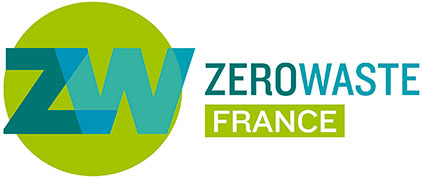Swept under the carpet: new reports reveal the greenwash of the European carpet industry
Each year , 700 million square meters of carpet are placed on the European market. Zero Waste France, Deutsche Umwelthilfe and Changing Markets investigated market.
Less than 3 per cent of carpets sold in Europe are recycled, despite high-profile sustainability initiatives within the industry, claim new reports published today in France and Germany.
The reports, published by Zero Waste France, Deutsche Umwelthilfe and Changing Markets, show that in a time, when European countries are considering ambitious recycling targets in the framework of the circular economy package, the carpet sector is lagging behind. Reuse and recycling are still virtually non-existent in the carpet sector, despite environmental claims of two of its big players, Desso and Interface. One particular scandal within the French carpet industry, highlighted in the report, is the use of carpets in events industry – where the carpet is used for only a few days, or even a few hours, before it is thrown in the bin.
Almost all carpets sent to landfill and incineration
Each year, 700 million square metres of carpet are placed on the European market. In the absence of any transparency on the recycling rates of the sector, the precise amount of recycled carpet in Europe was very difficult to establish. The authors of the report, however, believe that less than 3% of carpets sold are collected for recycling, and that part of this “recycling” turns out to be down-cycling – a transformation into a product of an inferior quality that is generally not recyclable at the end of its useful life.
Carpets manufacturers: a misleading communication
Two of the major carpet manufacturers in the EU market have been hiding behind ambitious sustainability claims. Researchers for the report found that sustainability leaders within the industry Interface and Desso have recycling rates of around 1.5% and 3% respectively, despite initiatives such as producing “zero waste” by 2020 (Interface) and including all their products in a “Cradle-to-cradle®” system (Desso).
Several industry organisations and initiatives, such as French Union of Rugs and Carpets (UFTM) and GUT (Gemeinschaft umweltfreundlicher Teppichboden) claim that their carpets go into “thermal recycling”, which is a misleading term for incineration that burns valuable resources, emits CO2 emissions and toxic chemicals, such as dioxin. In Germany, almost all carpet waste is incinerated, while in France a large share lands in landfills, where carpets can take centuries to degrade.
“Until now the carpet manufacturers have tried to sweep the non-ecological disposal of their products under the carpet,” said DUH’s lead on circular economy Thomas Fischer. “By using terms such as ‘thermal recycling’, which means nothing but the burning of valuable resources, the industry creates a misleading picture. It is particularly unfortunate that carpet manufacturers Interface and Desso, despite their ambitious sustainability promises to close the loop, only collect around 1.5 and 3 percent of their carpet sales for recycling. This stands in strong contradiction with the goal of Interface to cause no negative environmental impact by 2020, and the goal of Desso to manufacture all products according to the Cradle to Cradle principle by 2020,” concluded Fischer.
The big waste of the event sector
In France, the events sector is specifically problematic, as it treats its carpet as disposable product that is virtually never recycled. Some 1,135 fairs are being held in France every year, representing an exhibition area of almost 6 million square meters, the equivalent of more than 65,000 medium-sized homes in France. A large part of these stands, aisles, the external spaces or stairs is covered with single-use carpet. Virtually all this carpet is disposed of at the end of the fair, leading to a large amount of unnecessary waste.
The report concludes with a series of recommendations for manufacturers, users and policy-makers to change course and put the sector on a path of a true circular economy.
“The transition has to start immediately, otherwise the industry will be trapped in an unsustainable model for another 10 to 15 years,” says Flore Berlingen, director of Zero Waste France, “The impact of eco-design measures integrating the reuse and recycling of the carpets in the product form the start will only bear fruit several years down the line, because of the relatively long life time of carpet. In addition, the events industry must immediately stop its wasteful practices and move towards rental systems, as is the case in other European countries.”
All documents in FrenchAll documents in English














